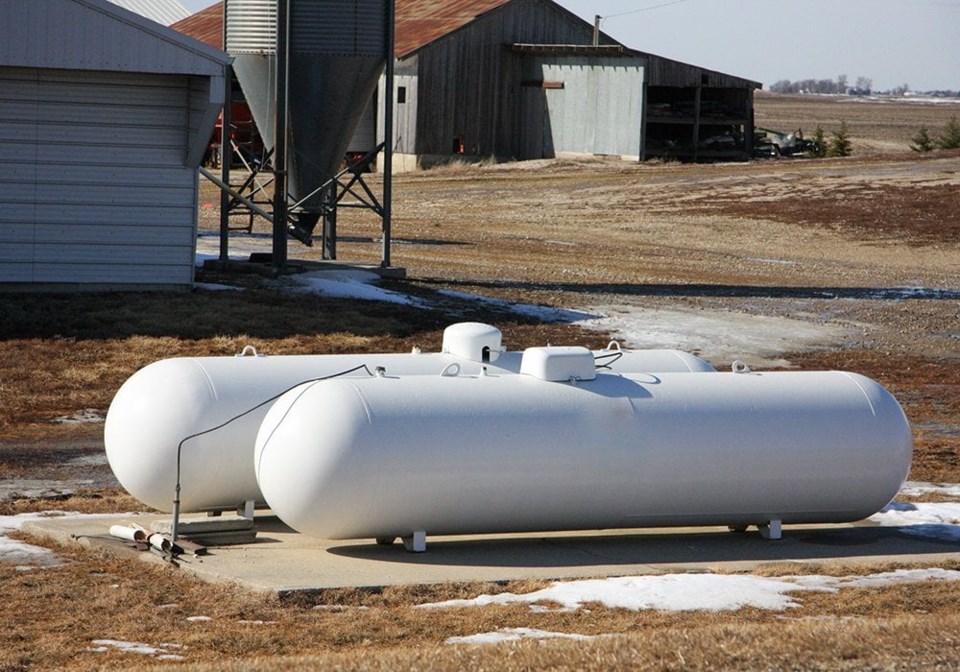Saskatchewan’s weather may be hard to predict, but one thing remains constant: homes in the province need to be heated throughout the winter months. Most urban areas are heated with natural gas, but many living in rural communities rely on other sources of heat such as propane.
Jim Atkinson is a farmer in rural Saskatchewan. He lives on a remote 1,700 square foot farmhouse in the RM (Rural Municipality) of Hillsborough near Old Wives Lake.
After receiving his latest home heating bill, he had to take a second look to make sure he saw the numbers correctly – it was well over $700 for the month.
Much of this expense comes as part of the federal government’s carbon tax program.
“We get the tax (taken from us) and we use it for heating our house…,” he said, noting that no distinction is made around the fuel’s usage. “It’s not as though we’re driving down the road.”
His main concern is with the ever-increasing federal carbon tax. “What are we getting out of it? Nothing. We’re just paying a bill.
“It’s not as if this tax is going to fix the roads… It doesn’t fix anything. It just goes into their pockets.”
The federal carbon tax was introduced by the Liberal government in 2019. The purpose of the tax, according to the government, is to serve as a financial incentive for individuals and businesses to change their behaviour around the burning of fossil fuels and other polluting activities.
The tax aims to encourage Canadians to transition into greener forms of energy, all while providing incentives for environmental research and allowing Canada to reach its stated emission targets.
The recent bill wouldn’t concern Atkinson so much if he had suitable alternatives to choose from.
Even if he – as with several of his neighbours – wanted to choose a better alternative or a cost-efficient analog, the option simply isn’t there.
“There’s nothing out here,” he said. “There’s no other option – you’re stuck with (propane).”
It’s not even meaningful to simply move into a smaller building. Atkinson’s son lives nearby in a mobile trailer home, which should come with a far lower heating bill. Instead, the trailer which also relies on propane only costs a few dollars less to heat.
Atkinson said he could install a heat pump, but with a price tag greater than $30,000, he said he’d spend the rest of his life paying it off and be in no better situation. He’s also concerned that a heat pump may not work well in Saskatchewan’s climate as they often fail below minus 30 Celsius.
Atkinson remembers the price of propane sitting around four to six cents per litre in neighbouring Alberta only 15 – 20 years earlier, and at a still reasonable 18 cents per litre in Saskatchewan at the time.
Today, he’s paying around $20 per day to heat his home, and 40 days of heat now costs $800.
On his recent $769.07 bill, Atkinson saw $149.90 in taxes and fees alone.
Breaking it down further, $619.17 covered the cost of propane, whereas $94.75 was added for federal taxes, $18 covered a hazardous material fee, and GST added another $36. The cost of propane today is 65.8 cents per litre, and the federal carbon tax costs 10.6 cents per litre on top of that.
Once a $200 per year rental fee is included to keep the propane tank on his property, Atkinson said it will cost him $2,500 to heat his home this year.
There’s a carbon tax rebate that all Canadian taxpayers receive when they file taxes, and Atkinson did acknowledge that he gets some of this money back. He is appreciative of even this small amount.
The problem, he stated, is that the trade-off doesn’t show any benefit. The next bill eats up more than his tax rebate pays out, and with the farm requiring a seasonal fuel bill north of $20,000 plus taxes, this payment virtually disappears.
Atkinson pointed out that other provinces have an ongoing rebate program for heating oil, such as in Canada’s Maritime provinces, but the same oil isn’t available in Saskatchewan. Saskatchewan has received no comparable rebate program in recent years for its consumption of natural gas or propane.
“Propane needs a rebate too if everyone else gets one. Right?” he suggested. “It costs just as much to heat with propane, so why are they not (doing this with) propane (as well)?”
Atkinson’s concern is shared by many others in the province, and residents are left wondering how high the cost to heat their home will continue to climb.




